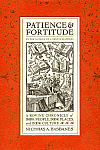|
 |
| Home |
Search |
Events | Quality Bargains |
Scholarly Section |
Remainders Section |
About Us & Contact |
|
Friday Forum: Jason Kaufman, November 1For the Common Good? American Civil Life and the Golden Age of FraternityOxford University Press Friday, 3pm The Golden Age of Fraternity was a unique time in American history. In the forty years between the Civil War and the onset of World War I, more than half of all Americans participated in clubs, fraternities, militias, and mutual benefit societies. Today this period is held up as a model for how we might revitalize contemporary civil society. But was America's associational culture really as communal as has been assumed? What if these much-admired voluntary organizations served parochial concerns rather than the common good? Jason Kaufman sets out to dispel many of the myths about the supposed civic-mindedness of "joining" while bringing to light the hidden lessons of associationalism's history. Relying on deep archival research in city directories, club histories, and membership lists, Kaufman shows that organizational activity in the late nineteenth and early twentieth centuries revolved largely around economic self-interest rather than civic engagement. And far from spurring concern for the collective good, fraternal societies, able to pick and choose members at will, fostered exclusion and further exacerbated the competitive interests of a society divided by race, class, ethnicity, and religion. Tracing both the rise and the decline of American associational life - a decline that began immediately after World War I, much earlier than previously thought - Kaufman argues persuasively that the end of fraternalism was a good thing. Illuminating both broad historical shifts - immigration, urbanization, and
the disruptions of war, among them - and smaller, overlooked contours, such
as changes in the burial and life insurance industries, Kaufman has written
a bracing revisionist history. Eloquently rebutting those hailing America's
associational past and calling for a return to old-style voluntarism, For
the Common Good? will change the terms of debate about the history - and the
future - of American civil society. Author Biography Jason Kaufman, Assistant Professor of Sociology at Harvard University, received his A.B. in Social Studies from Harvard College (1993). He holds an MA (1996), and PhD from Princeton University (1999). His dissertation examined patterns of local political development in the United States through the Progressive Era, focusing on the impact of new information networks on early American political behavior. He has also published papers on civic associationalism in the 19th century United States; AIDS preventive policy and anti-discrimination law; and the cultural worlds of American high school students. Kaufman was recipient of the 2001 George Kahrl Award in Sociology "in recognition of outstanding commitment to undergraduate education, enthusiasm for students, and scholarly guidance." For those who may wish to read more about this topic, Jason Kaufman suggests the following books:
|
||||||||||
Home | Search | Scholarly | Bargains | Events | About Us | Contact
Copyright 2004 Harvard Book Store
Phone: 800-542-READ FAX: 617-497-1158


